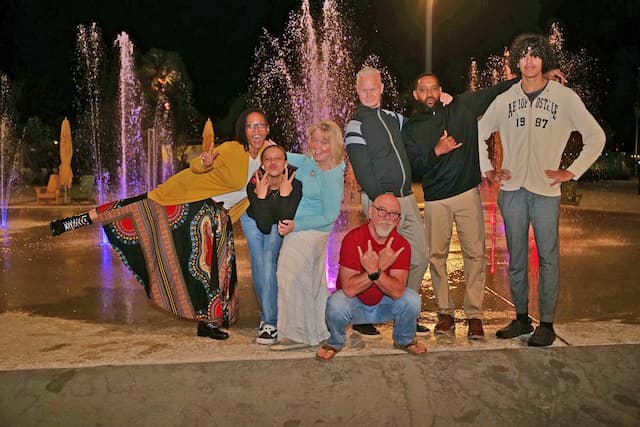Translating the Bible: The Use of Gender Inclusive Language

One difficult issue in Bible translation today is the use of gender inclusive language. The debate is focused on whether the use of inclusive language changes the meaning of the text and misrepresents what the biblical author was trying to communicate.
I am not against the use of inclusive language provided that the translation does not misrepresent the intent of the original text. Word-for-word translation is just not practical because one language does not automatically translate into another language.
A translation of the Bible should be clear and accurate. It should communicate in English precisely what the biblical author was trying to communicate to the primary audience. At times, a good translation may require a little liberty with the text in order to communicate the real message of the original text, but the original intent of the writer must not be changed.
One verse where some translations have chosen to use inclusive language is Isaiah 9:1. However, the use of inclusive language in Isaiah 9:1 has completely changed the original meaning of the text and fails to represent the intent of the message of the writer.
The proper understanding of Isaiah 9:1 requires a brief historical introduction.
When Ahaz became king of Judah in 735 B.C., the nations of the Ancient Near East were dealing with the menace posed by the Assyrian army and the policies of total conquest initiated by Tiglath-pileser III, king of Assyria.
The Northern Kingdom was not immune to the threat posed by Assyria. When Pekahiah, the son of Menahem, became king in 738, he continued his father’s policy of cooperation with Assyria. However, the burden of the tribute paid to Assyria convinced many Israelites that it was time for change. In 737 B.C., Pekahiah was assassinated by Pekah, who was the third man in Pekahiah’s war chariot. Pekah had the support of the anti-Assyrian faction in Israel and of those who advocated cooperation with Syria
Pekah came to the throne of Israel in order to foment revolt against Assyria. Pekah, king of Israel, and Rezin, king of Syria, formed an alliance in order to resist Tiglath-pileser. Acting in partnership, Pekah and Rezin turned their efforts to the south, to Judah, hoping to increase the strength, proximity, and size of their coalition.
At first, Jotham and then later, his son Ahaz, king of Judah refused to join the alliance. Rezin, king of Syria, and Pekah, king of Israel, invaded Judah in order to place on the throne, Tabael (Isaiah 7:6), a man who would favor a joint alliance to fight against Assyria. This was the beginning of the Syro-Ephraimite War.
Aware that his situation was precarious, and against the advice of the prophet Isaiah, Ahaz asked Tiglath-pileser for military help (2 Kings 16:7). Ahaz paid a heavy tribute to Assyria. In order to gather the money needed for the tribute, Ahaz took gold and silver from the temple and from the royal treasury ( 2 Kings 16:8).
Ahaz sent messengers to Tiglath-pileser with the following message: “I am your servant and your son. Come up, and rescue me from the hand of the king of Syria and from the hand of the king of Israel, who are attacking me” (2 Kings 16:7).
In response to Ahaz’s invitation, Tiglath-pileser came to Palestine to help Judah. He conquered Philistia first and then invaded Syria. Tiglath-pileser “marched up against Damascus, and took it, carrying its people captive to Kir, and he killed Rezin” (2 Kings 16:9).
Then, Tiglath-pileser came against Israel, conquered several cities in Galilee and Naphtali and deported many people to Assyria: “In the time of Pekah king of Israel, Tiglath-Pileser king of Assyria came and took Ijon, Abel Beth Maacah, Janoah, Kedesh and Hazor. He took Gilead and Galilee, including all the land of Naphtali, and deported the people to Assyria” (2 Kings 15:29).
A few years later, the prophet Isaiah proclaimed an oracle recorded in Isaiah 9:1–6 that is a direct reference to the events related to the Syro-Ephraimite War. Although time and space does not allow me to deal with the entire passage (see People Walking in Darkness: Isaiah 9:1–2), Isaiah 9:1 (the versification is different in the Hebrew Bible. Isaiah 9:1 is 8:23 in the Hebrew Bible) has been translated differently by translators.
“But there will be no gloom for her who was in anguish” (Isaiah 9:1 ESV).
“But there will be no gloom for her that was in anguish” (Isaiah 9:1 RSV).
“But there will be no gloom for those who were in anguish” (Isaiah 9:1 NRSV).
“Nevertheless, there will be no more gloom for those who were in distress (Isaiah 9:1 NIV).
These four translations differ on how the first part of verse 1 is translated. The word “her” of the ESV and the RSV refers to the “land.” The word “those” of the NIV and the NRSV refers to the people.
The feminine pronoun in the Hebrew text requires that the “her” be related to the land. The ESV and the RSV say that because of the events related to the war, the land was in distress. The translation of the NIV and the NRSV distort the message of the verse and convey an incorrect impression to the reader by saying that because of the war, the people were in distress.
The translation of the Holman Christian Standard Bible (HCSB) is direct and to the point:
“Nevertheless, the gloom of the distressed land will not be like that of the former times” (Isaiah 9:1).
Why did the NIV and the NRSV choose to change the text and use “those” instead of “her” in translating the pronoun? There are two possible answers:
1. The translators of the NIV and the NRSV understood the land (“her”) to represent the people (“those”). However, this translation disregards the fact that the word “land” in “the land of Zebulun” and “the land of Naphtali” is feminine and is in direct relationship with the pronoun “her.”
2. It is possible that the translators were using gender inclusive language and refused to use the word “her” in the same way they avoided using the word “him” in other texts in the two translations.
I suspect the use of “those” in Isaiah 9:1 came out of a desire to be gender inclusive, but this effort at being gender inclusive completely changes the meaning of the text and does not allow the reader to grasp the real message of the prophet.
In their books, the prophets emphasize that the land suffers because of the sins of the people. Hosea said that because of the sins of the people, “the land mourns” (Hosea 4:3). Because of the sins of the people, the land was defiled and became an abomination (Jeremiah 2:7). The message of Isaiah must be understood in the context of the Syro-Ephraimite War: because of the sins of the people, the land was in distress.
The translation of the NIV and the NRSV is unfortunate. Those who read Isaiah 9:1 in these translations may have compassion for the people who were in distress but they will feel nothing for the land, the real concern of the prophet. And the only reason the reader will be unable to sympathize with the distress of the land is because somewhere a committee decided to be politically correct rather than to convey the real message of the prophet.
NOTE: For other studies on translating the Bible, see my post, Studies on Translation Problems in the Old Testament.
NOTE: For a complete list of studies on the book of Isaiah, read my post, Studies on the Book of Isaiah.
Claude Mariottini
Emeritus Professor of Old Testament
Northern Baptist Seminary
NOTE: Did you like this post? Do you think other people would like to read this post? Be sure to share this post on Facebook and share a link on Twitter or Tumblr so that others may enjoy reading it too!
I would love to hear from you! Let me know what you thought of this post by leaving a comment below. Be sure to like my page on Facebook, follow me on Twitter, follow me on Tumblr, Facebook, and subscribe to my blog to receive each post by email.
If you are looking for other series of studies on the Old Testament, visit the Archive section and you will find many studies that deal with a variety of Old Testament topics.






